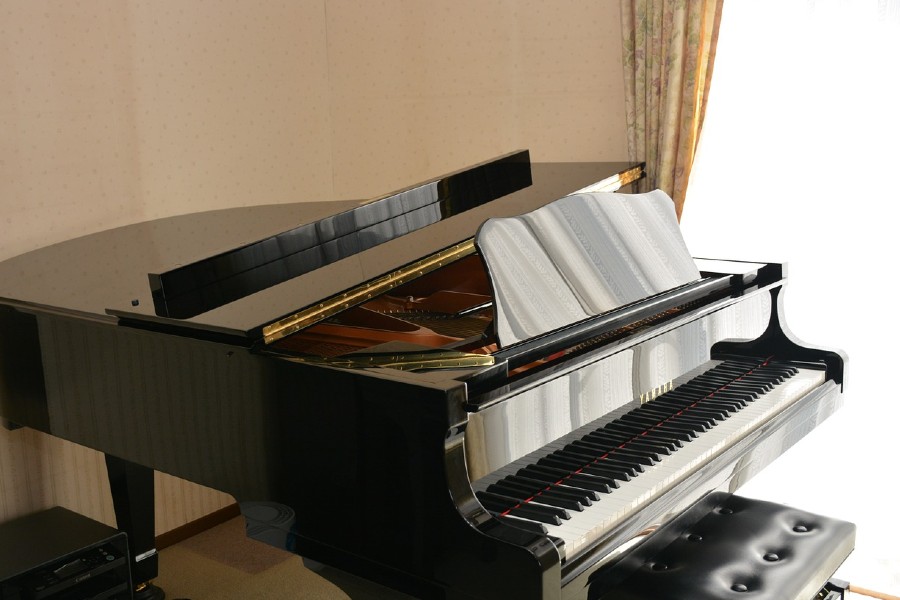
When shopping for a piano, one of the first decisions you’ll encounter is whether to invest in an acoustic or digital piano.
Both options have their own pros and cons you should weigh carefully before deciding which is better suited for your needs and budget. Carefully matched to your priorities as a developing pianist, the right piano will provide you with many years of joy and beautiful music. Keep an open mind as you explore these two great options. Define what combination of sound, touch, features, and price suits your situation best. Invest the time upfront to make an informed buying decision you won’t regret. This guide will walk through the key factors to consider.
Acoustic Piano Advantage
Acoustic pianos produce a rich, nuanced sound via vibrating strings struck by physical hammers. This allows acoustics to mirror the intricate dynamic range of real pianos, from the most delicate whisper of a note to a triumphant, thunderous crescendo. Digital pianos rely on stereo samples to mimic tones, but even sophisticated models cannot fully reproduce the richness, resonance, and subtlety of an acoustic’s sound. Only real wood strings and hammers can provide the textured tonal nuance and continuous spectrum from pianissimo to fortissimo. Acoustics also respond directly to your touch on the keys, building proper finger control and technique better than digitals. Plus, a well-maintained acoustic piano holds its value should you ever wish to upgrade and sell in the future. However, be prepared for the higher cost investment up front, as well as long-term care and maintenance like regular tuning to compensate for climate changes. The huge footprint and heavy weight of a grand or baby grand acoustic also limit placement options.
Acoustic Piano Disadvantage
Digital pianos offer recreation of piano tones using sophisticated sound sampling and engineering. Affordable prices make them accessible for beginners and hobbyists on a budget. Their compact size provides portability and headphone jacks allow private practice. Helpful features like metronomes, rhythm accompaniments, and recording capabilities enhance the learning experience. However, digitals fall short of replicating the nuanced tonal spectrum of acoustic pianos. Key actions often feel more synthetic and springy as well. Shop carefully, as quality varies widely by price point in digital models.
Digital Piano Advantage
Their superior resonance, dynamic range, and authentic touch make them ideal for nurturing piano technique and ability over years of practice. The unfiltered tones of real strings and hammers train your ear in a way that accurately translates to the experience of playing genuine acoustic pianos in performance settings. However, be prepared for the responsibility and maintenance that comes with owning an acoustic instrument. Have it professionally tuned at least twice per year, and monitor humidity levels in the room to prevent seasonal damage to the sensitive wooden soundboard. If your financial situation or living space cannot accommodate a full-sized acoustic, digital pianos can be great home alternatives, especially for beginners. Evaluate the key action closely to find a digital model that provides adequate weight and response to help build proper finger strength and dexterity. Listen critically to the sampled tones—higher-end instruments capture the resonance and nuance of acoustic sound more realistically. While no samples can perfectly replicate the texture of real strings, quality digital pianos let you enjoy piano playing at home with versatility and convenience.
Digital Piano Disadvantage
When deciding between acoustic and digital, carefully match the piano specs to your space, budget, and musical needs. If possible, visit piano dealers to test instruments side-by-side, listening for tonal quality and trying out the keyboards. Ask about included warranties, delivery fees, and maintenance needs as well. Consider accessories like furniture-style stands and sustain pedals to enhance the look and performance of a digital piano.
Comparison Between Acoustic Piano vs Digital Piano
Choosing between an acoustic or digital piano ultimately comes down to personal priorities around sound, feel, convenience, and budget. For pianists who demand the true resonance and aesthetics only a real acoustic can provide, the higher cost investment will be worthwhile. The unparalleled tone from vibrating strings and the subtle dynamic range of authentic hammers striking wires are unmatched—for some pianists, nothing less will suffice. However, digital pianos have opened up piano playing to more people than ever through increased accessibility and convenience. Their affordability, versatility, smaller footprint, and low maintenance needs remove barriers that may have previously prevented enjoying piano at home. There is no definitively superior option—it comes down to defining your needs and which compromises you are willing to accept. Carefully test playing both acoustic and digital models to decide which provides the sound and feel you find most inspiring. Listen critically to make sure sampled digital tones have enough richness and nuance for your taste. Try out the key action to ensure it has adequate weight and response. With diligent research and patience during your buying journey, confidence in choosing between acoustic or digital will grow. Before committing, be certain you are matching your budget, space constraints, and musical goals with the right piano type for your needs. With proper research, you can confidently choose between these two modern piano options and buy it at every music shop Sacramento.
Weighing acoustic against digital piano benefits and drawbacks will steer you towards the right instrument for your space, skills, and budget. Keep your individual needs at the forefront when evaluating these two great options for piano enthusiasts. There is no objectively superior option—the right piano depends entirely on your priorities and needs. The goal is matching your reality to the piano type that aligns with your musical passion, while accepting necessary compromises. Carefully weighing the pros and cons of acoustic versus digital relative to your individual situation will clarify which instrument is the best choice for your needs and goals as a pianist.
Photo credit: HWM.
- Adams’ Apprenticeship Program Surpasses 15,000 Opportunities In Under Three Years
- Why New Energy Cooling Fans Are Crucial For PV Field Applications
- Protein Supplements Vs. Protein Foods: Which Is Better For You?
- Sponsored Love: Navigating The Market, How Melbourne Buyers Agents Maximize Your Investment Potential
- Carrot Recall Expanded To Produce Sold At Whole Foods Based On E. Coli Contamination
Become a Harlem Insider!
By submitting this form, you are consenting to receive marketing emails from: . You can revoke your consent to receive emails at any time by using the SafeUnsubscribe® link, found at the bottom of every email. Emails are serviced by Constant Contact








